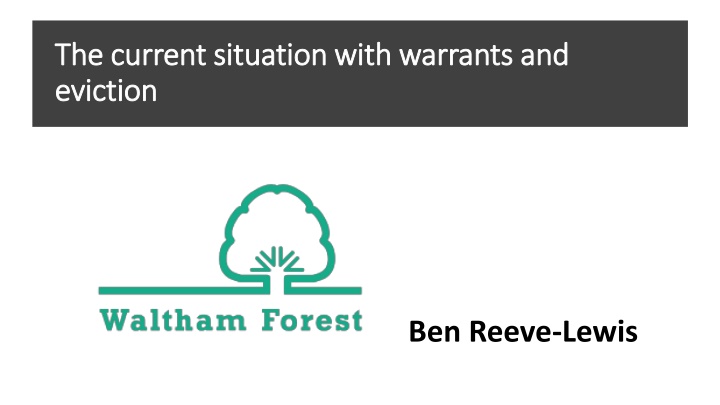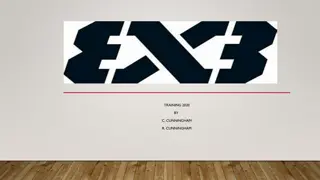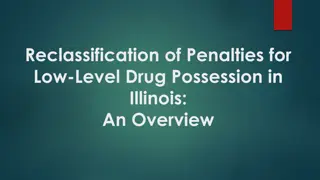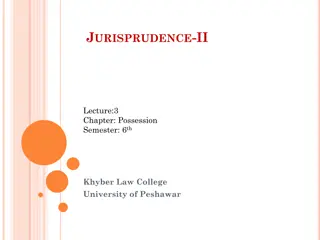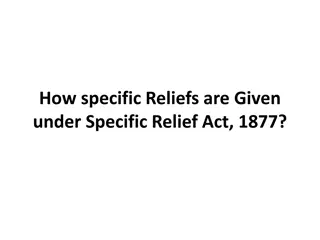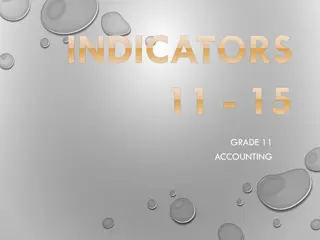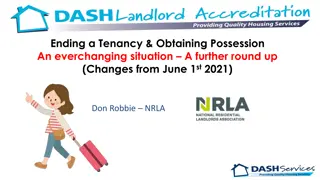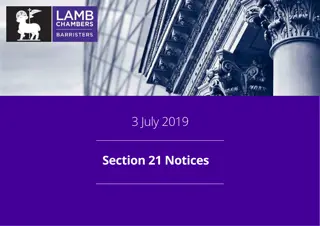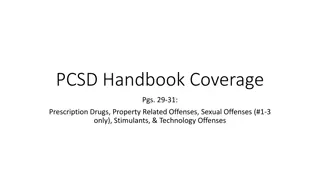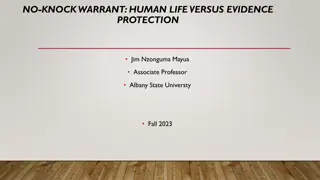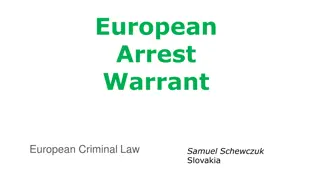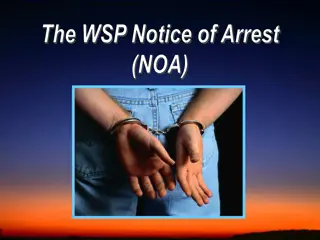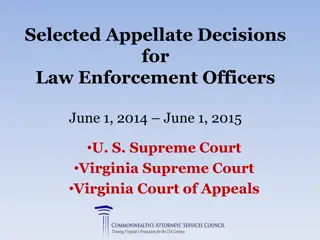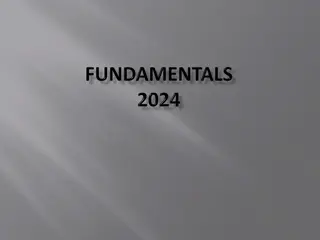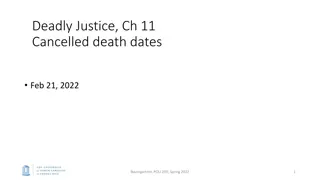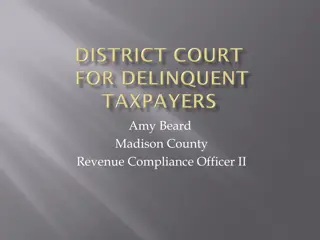Current Updates on Possession Procedures, Warrants, and Evictions
The current situation involves possession procedures, warrants, and eviction-related updates due to the ongoing circumstances. It covers details on notice periods, reactivating possession claims, and the impact of Covid-19 on eviction processes. Additionally, the overview includes information on moratoriums on private sector evictions and recent changes in minimum notice periods for various notices served during specific timeframes.
Download Presentation

Please find below an Image/Link to download the presentation.
The content on the website is provided AS IS for your information and personal use only. It may not be sold, licensed, or shared on other websites without obtaining consent from the author.If you encounter any issues during the download, it is possible that the publisher has removed the file from their server.
You are allowed to download the files provided on this website for personal or commercial use, subject to the condition that they are used lawfully. All files are the property of their respective owners.
The content on the website is provided AS IS for your information and personal use only. It may not be sold, licensed, or shared on other websites without obtaining consent from the author.
E N D
Presentation Transcript
The current situation with warrants and The current situation with warrants and eviction eviction Ben Reeve-Lewis
Current situation with possession Current situation with possession and warrants and warrants Possession procedures can go through and warrants as well. Warrants would only be executed where there were 6 months arrears The provision for discounting arrears accruing since March was lifted. The same provisions have now been extended to 31stMarch, in line with Wales and business rentals.
Nemeth v Hungary ECHR App. No. 73303/14 A moratorium on private sector evictions of just over 2 years was instituted in response to economic collapse in Hungary. The landlord challenged this on the basis that it breached his article 1 rights to enjoyment of property The European court decided that the moratorium did not affect the landlord s ownership of the property, it merely delayed him from taking possession. The 2 year moratorium is therefore lawful.
Notice periods Notice periods For notices served between 29 August 2020 and 31 March 2021 inclusive of, the minimum notice period is six months Section 8 notices are also six months duration unless the claim is for rent arrears of more than 6 months, in which case the notice period is 1 month Possession orders made under the s.21 procedure for assured shorthold tenancies are subject to the eviction ban even if there are rent arrears at the time the possession order was made, or if arrears have accrued since.
Rules for reactivating claims for possession made before 3 August 2020 These rules apply to possession claims: brought before 3 August 2020 where no possession order was made before 27 March 2020 The claimant must serve a reactivation notice on the court confirming that they wish the case to be listed, relisted, heard or referred to a judge Landlords who obtained a possession order or a warrant of possession before 27 March 2020 do not need to use a reactivation notice.
Reactivation Reactivation notices notices set out what the claimant knows about the effect of the Covid-19 pandemic on the defendant and their dependants be accompanied by an updated rent account for the previous two years if the claim is based on rent arrears The reactivation notice must be served: if a trial date was set, no less than 42 days before the hearing, or in any case, before 4pm on 30 April 2021 If a claimant misses the deadlines for serving a reactivation notice, the court will stay the claim. The claimant will need to apply to have the stay lifted.
Repairs and maintenance Repairs and maintenance During the coronavirus pandemic, the statutory repairing obligations remain unchanged. Works and inspections should be carried out in line with the current public health advice. The revised non-statutory guidance for landlords and tenants contains the latest advice on how landlords can meet their repairing obligations safely during the Covid-19 pandemic, including where the tenant is self-isolating. The guidance changes regularly.
Local authority enforcement and Local authority enforcement and inspections inspections The local authorities powers and duties in relation to enforcement of housing standards remain unchanged during the coronavirus pandemic. The non-statutory guidance for local authorities advises on how enforcement interventions can be safely carried out during the Covid-19 pandemic, including where the tenant is self-isolating
Gas safety checks Gas safety checks The Gas Safe Register (GSR) guidance currently states that GSR inspections will take place following social distancing guidelines. The revised non statutory guidance for landlords and tenants advises that if the tenant is self-isolating, the gas safety check may be postponed until it is safe to carry it out, unless there is a direct risk to the tenant or their household.
A new trend A new trend The CAB and some law centres are reporting that the biggest increase in enquiries they are seeing at the moment is approaches from tenants asking advice on how to end their tenancies early because they cannot afford the rents due to loss of income brought about by job loss or furloughing. Landlords facing all the problems we have talked about tonight might want to look to the possibility of providing funds for their tenants to relocate as a cost conscious alternative to a government that has no plans to address the rent arrears crisis
Protection from Eviction Act Protection from Eviction Act 1977 1977 Despite the rising level of rent arrears and stay on execution of warrants, the PFEA remains unchanged and it is still a criminal offence to evict renters without following due process. In other words, without obtaining a possession order and a warrant from the court.. Illegal eviction can affect perpetrators in 3 ways:- 1. Criminal prosecution by local authority. 2. Civil damages brought by tenants, 3. Rent Repayment Orders, amounting to paying back 12 month s worth of rent
Rent Repayment Orders Rent Repayment Orders RROs can be claimed for failing to licence and harassment and illegal eviction, among others. Vadamalayan v. Stewart (June 2020) confirmed that when tribunal make awards they are no longer to discount landlord s reasonable expenses, such as mortgage payments or penalties paid to the local authority. Therefore, an RRO for 15,000 is more likely to be made at 15,000 with no deductions.
Any questions? Any questions? with warrants and eviction and eviction with warrants Ben Reeve-Lewis
